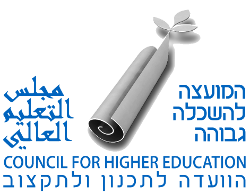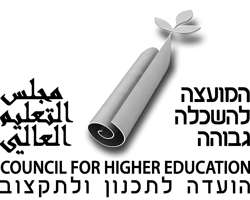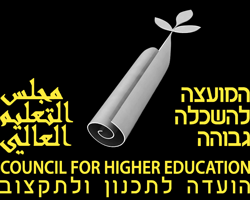Highlights of the multiyear plan
- The scholarship for women post-doctoral students will be increased significantly from up to $50,000 for two years to $80,000 for two years.
- Women post-doctoral students in high-tech fields will receive scholarships of NIS 150,000 (for three years) and women master’s students in high-tech fields will receive scholarships of NIS 80,000 (for two years).
- A total of NIS 1 million annually will be given as prizes of excellence to institutions that excel in gender fairness.
- For the first time, academic institutions will be asked to publish an annual gender report on their website, in accordance with the regulations of the European Union.
- For the first time, the PBC is allocating a special budget to the activity of president advisors on gender fairness at institutions of higher learning. The total budget will be up to NIS 120,000 per institution.
PBC Chairperson Prof. Yaffa Zilbershats stressed that the multiyear program for the higher education system placed the promotion of women in academia, with a focus on senior faculty members, as a key objective in its work plan. She said, “We set a goal and are determined to succeed! Academia, led by the CHE and PBC, must act to break down the cultural, social and organizational barriers that prevent women from moving to the next level and moving up the academic ladder. The higher education system is founded upon the recruitment of quality personnel for teaching and research. The more women who serve in senior roles, the greater the possibility of expanding the circle and maximizing Israeli human capital for their personal benefit and the benefit of Israeli society and academia.
For the first time, the CHE and PBC approved an outline for a multiyear program (2018-2022) to promote gender fairness in the higher education system – a total of NIS 60 million. The program is in line with the principles defined by the CHE for the promotion of women to senior faculty positions and is based on the recommendations of Prof. Arnon’s Committee, which heightened awareness of gender fairness at institutions of higher learning and recruitment and promotion of women in academic faculty in general and, specifically, in the fields in which representation of women is particularly low, such as in the high-tech professions. The program is for institutions budgeted by the PBC.
Background:
The gender status at the institutions of higher learning in Israel has, over time, followed a scissors-shaped trend: While women make up over 50% of the undergraduate and graduate student body, their representation decreases as you move up the academic ladder. At the tip of the pyramid, at the rank of professor, the representation of women is significantly lower.
- According to CHE data, 58% of undergraduate students are women, and the majority holds in both master’s degree (62%) and doctoral programs (53%). However, when examining the percentage of women who hold senior faculty positions, the picture is reversed, and only a small portion of these women (approximately 30% at the universities and 42% of the colleges) go on to hold senior academic positions.
The CHE adds that experience has shown that the main barriers blocking women from advancing in academic careers are due to a systematic lack of awareness of gender bias. These biases are attributable to cultural and social failures – expectations of women regarding their role in the family, the difficulty finding a balance between home life and an academic career, etc. These barriers and others stop many women from realizing their dreams to continue on to postdoctoral studies abroad, which are critical to gaining experience towards a senior faculty position.
Objectives of the multiyear program to promote gender fairness:
- Annual gender reporting: Starting in the 2018-2019 academic year, the institutions of higher learning will be asked, for the first time, to submit an annual gender report (in accordance with She Figures, an agency of the European Union). The reporting will include, among other things, data on institutional policy and activity towards the promotion and representation of women, including the administrative bodies (faculties/institutional), the gender composition of students by department/faculty and degree, gender breakdown of student rights to scholarships and institutional prizes, following women doctoral students and post-doctoral students who earned various institutional scholarships and more. The institutions will be requested to publish the report on the institutional website, for among other reasons, to heighten awareness of the issue.
- Allocation of special budget for activity of president advisors on gender fairness: As a step leading up to the approval of the full program, PBC has allocated, for the first time, in the 2018-2019 academic year a special budget of up to NIS 60,000 per institution for activity of president advisors on gender fairness. As part of approval of the full program, it was decided that as of the 2018-2019 academic year, the budget will be doubled to up to NIS 120,000 per institution.According to the program, the advisors will work to submit a comprehensive and detailed annual gender report on the activity in this regard at the institution. Additionally, the advisors will work to heighten awareness of the issue, organize study days and information, gender training for the committees responsible for recruiting and promoting faculty at the institution, and promoting mentoring and empowerment programs for women doctoral students, new faculty and women students.
- Providing a total of NIS 1 million in annual incentives (prizes of excellence) for institutions of higher learning that have shown significant improvement in gender fairness: The incentives will be awarded based on diverse success criteria. (For example: Increase in a certain percentage in the number of women post-doctoral students at the institution; an increase of a certain percentage in the number of women faculty members hired; increase of a certain percentage in the number of women doctoral students at the institution, etc.). The criteria will be defined at a later date.
- Scholarship program for outstanding women post-doctoral students: The scholarship program will grow from $30-50,000 for two years to $60-80,000 for two years (depending on the recipient’s family and marital status). The purpose of the scholarship is to help with expenses such as flight tickets for their partner and children, rent, current expenses, and more.
- Competitive budget as part of a call for proposals: A call for proposals will be sent to the institutions and will be focused on projects that offer a holistic response to the problem. The projects will need to focus on proposing solutions for the various aspects of recruitment and promotion of women faculty members, such as development of a mechanism to encourage women to accept post-doctoral posts abroad, proactive training for advisors and faculty, development of mechanisms to maintain contact with the women during their post-doctoral positions and more.
- Recruitment and promotion of women who are faculty members in fields in which the representation of women is particularly low (high-tech professions) – this support will be provided through scholarships for graduate studies:
- Allocation of budget for 10 scholarships for women doctoral students in high-tech fields, starting in the 2018-2019 academic year. The amount of the annual scholarship will be approximately NIS 52,200 (for three years), subject to matching of NIS 10,000 by the institution.
- Allocation of budget for 10 scholarships for women masters’ students in high-tech fields, starting in the 2018-2019. The amount of the annual scholarship will be approximately NIS 41,000 (for two years).



